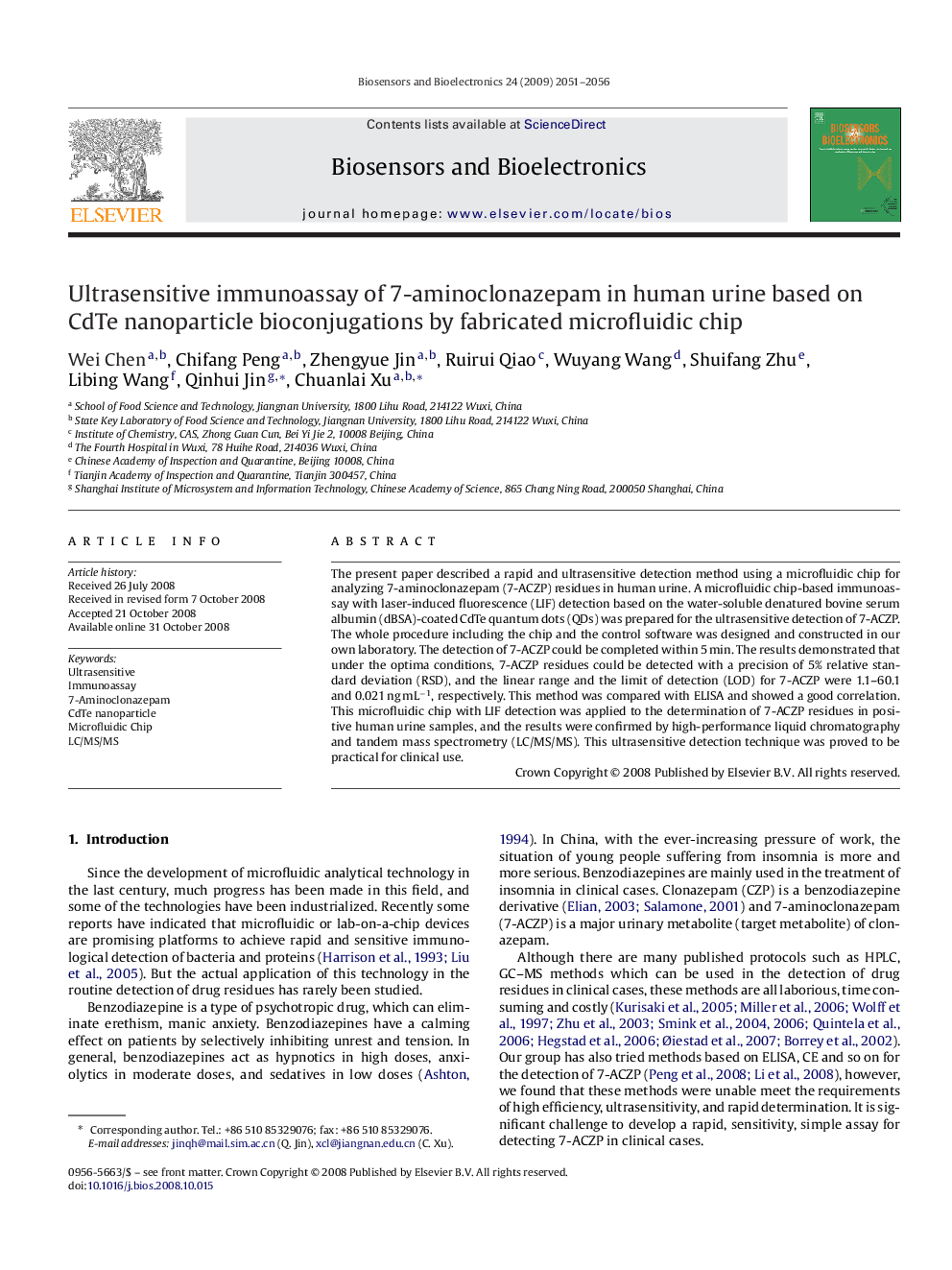| Article ID | Journal | Published Year | Pages | File Type |
|---|---|---|---|---|
| 869761 | Biosensors and Bioelectronics | 2009 | 6 Pages |
The present paper described a rapid and ultrasensitive detection method using a microfluidic chip for analyzing 7-aminoclonazepam (7-ACZP) residues in human urine. A microfluidic chip-based immunoassay with laser-induced fluorescence (LIF) detection based on the water-soluble denatured bovine serum albumin (dBSA)-coated CdTe quantum dots (QDs) was prepared for the ultrasensitive detection of 7-ACZP. The whole procedure including the chip and the control software was designed and constructed in our own laboratory. The detection of 7-ACZP could be completed within 5 min. The results demonstrated that under the optima conditions, 7-ACZP residues could be detected with a precision of 5% relative standard deviation (RSD), and the linear range and the limit of detection (LOD) for 7-ACZP were 1.1–60.1 and 0.021 ng mL−1, respectively. This method was compared with ELISA and showed a good correlation. This microfluidic chip with LIF detection was applied to the determination of 7-ACZP residues in positive human urine samples, and the results were confirmed by high-performance liquid chromatography and tandem mass spectrometry (LC/MS/MS). This ultrasensitive detection technique was proved to be practical for clinical use.
